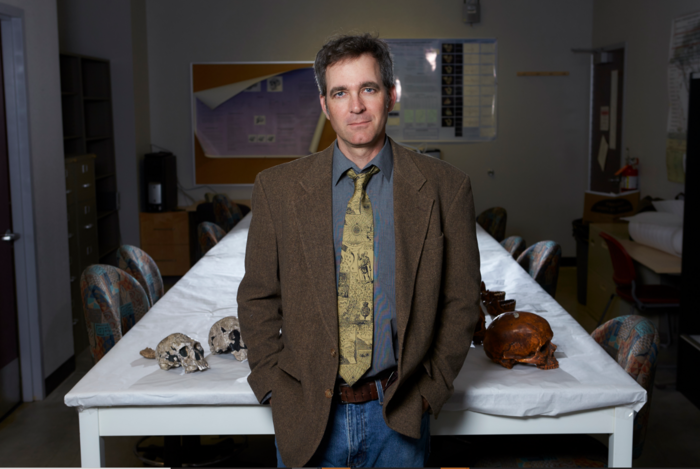Did the 12th century B.C.E. — a time when humans were forging great empires and developing new forms of written text — coincide with an evolutionary reduction in brain size? Think again, says a UNLV-led team of researchers who refute a hypothesis that’s growing increasingly popular among the science community.

Credit: Aaron Mayes/UNLV
Did the 12th century B.C.E. — a time when humans were forging great empires and developing new forms of written text — coincide with an evolutionary reduction in brain size? Think again, says a UNLV-led team of researchers who refute a hypothesis that’s growing increasingly popular among the science community.
Last year, a group of scientists made headlines when they concluded that the human brain shrank during the transition to modern urban societies about 3,000 years ago because, they said, our ancestors’ ability to store information externally in social groups decreased our need to maintain large brains. Their hypothesis, which explored decades-old ideas on the evolutionary reduction of modern human brain size, was based on a comparison to evolutionary patterns seen in ant colonies.
Not so fast, said UNLV anthropologist Brian Villmoare and Liverpool John Moores University scientist Mark Grabowski.
In a new paper published last week in Frontiers in Ecology and Evolution, the UNLV-led team analyzed the dataset that the research group from last year’s study used and dismissed their findings.
“We were struck by the implications of a substantial reduction in modern human brain size at roughly 3,000 years ago, during an era of many important innovations and historical events — the appearance of Egypt’s New Kingdom, the development of Chinese script, the Trojan War, and the emergence of the Olmec civilization, among many others,” Villmoare said.
“We re-examined the dataset from DeSilva et al. and found that human brain size has not changed in 30,000 years, and probably not in 300,000 years,” Villmoare said. “In fact, based on this dataset, we can identify no reduction in brain size in modern humans over any time-period since the origins of our species.”
Key Takeaways
The UNLV research team questioned several of the hypotheses that DeSilva et. al gleaned from a dataset of nearly 1,000 early human fossil and museum specimens, including:
- The UNLV team says the rise of agriculture and complex societies occurred at different times around the globe — meaning there should be variation in timing of skull changes seen in different populations. However, DeSilva’s dataset sampled only 23 crania from the timeframe critical to the brain shrinkage hypothesis and lumped together specimens from locations including England, China, Mali, and Algeria.
- The dataset is heavily skewed because more than half of the 987 skulls examined represent only the last 100 years of a 9.8-million-year span of time — and therefore don’t give scientists a good idea of how much cranial size has changed over time.
- Multiple hypotheses on causes of reduction in modern human brain size need to be reassessed if human brains haven’t actually changed in size since the arrival of our species.
Publication Details
“Did the transition to complex societies in the Holocene drive a reduction in brain size? A reassessment of the DeSilva et al. (2021) hypothesis” was published July 29 in Frontiers in Ecology and Evolution.
Journal
Frontiers in Ecology and Evolution
DOI
10.3389/fevo.2022.963568
Method of Research
Content analysis
Subject of Research
People
Article Title
Did the transition to complex societies in the Holocene drive a reduction in brain size? A reassessment of the DeSilva et al. (2021) hypothesis
Article Publication Date
29-Jul-2022
COI Statement
The authors declare that the research was conducted in the absence of any commercial or financial relationships that could be construed as a potential conflict of interest.




